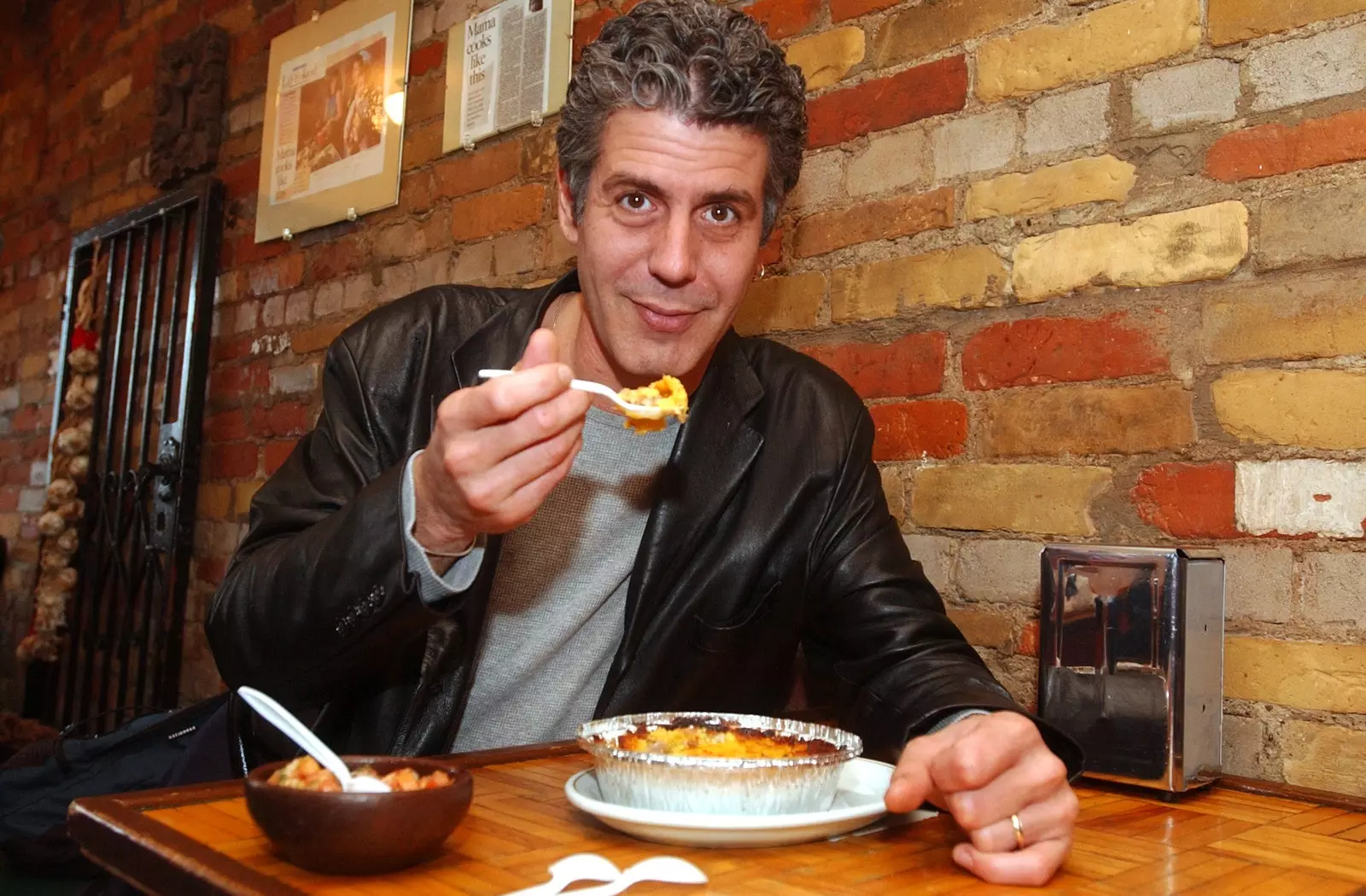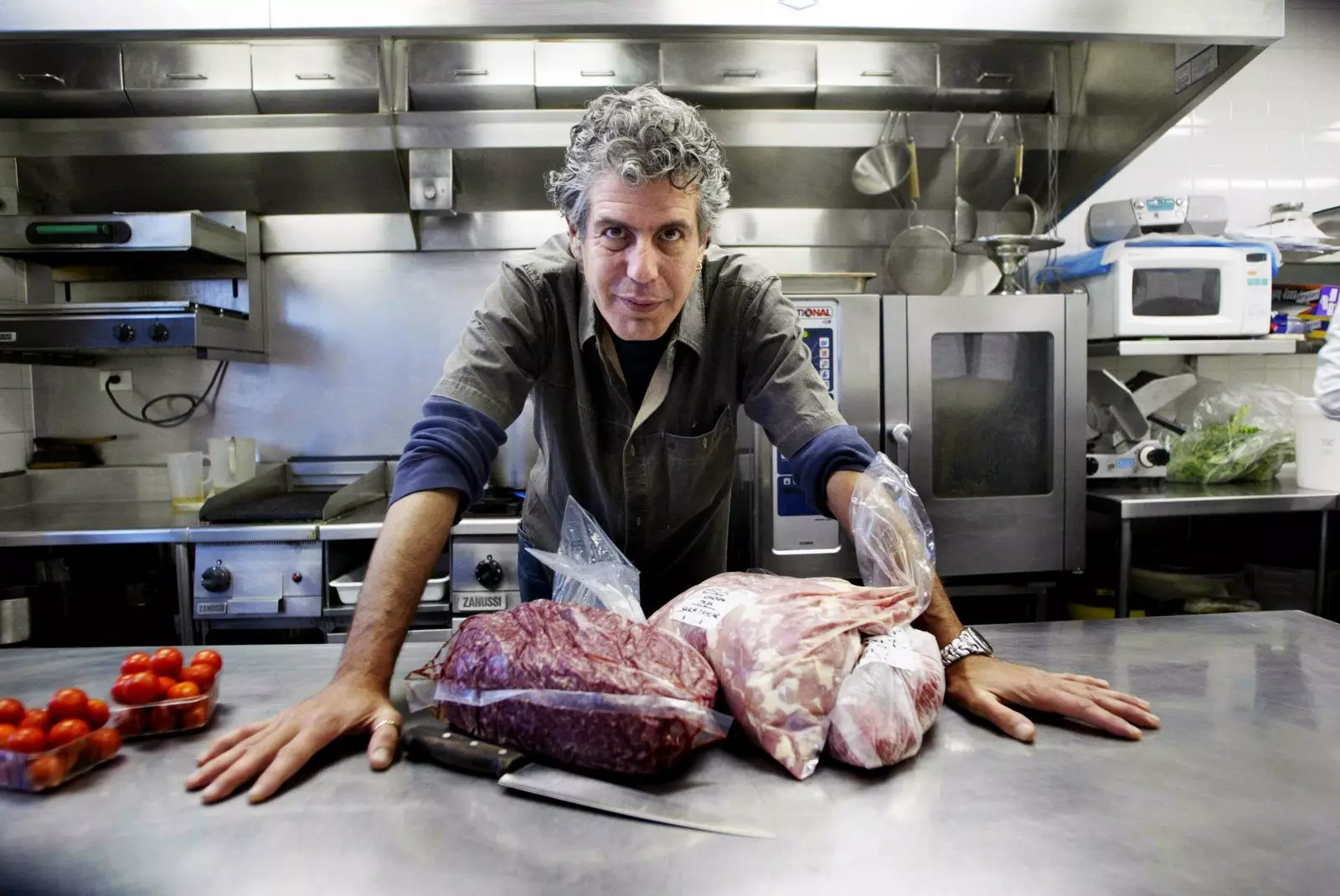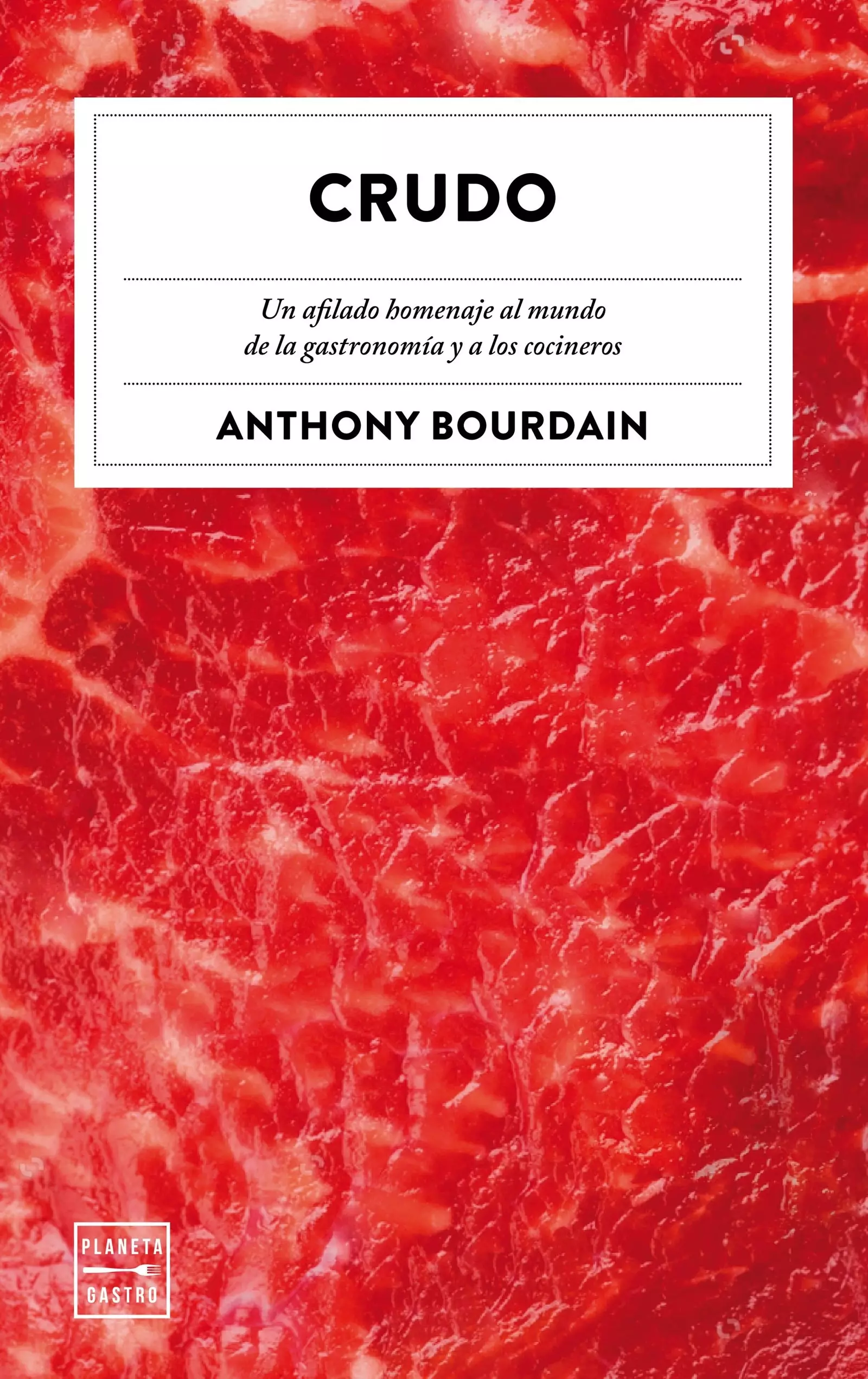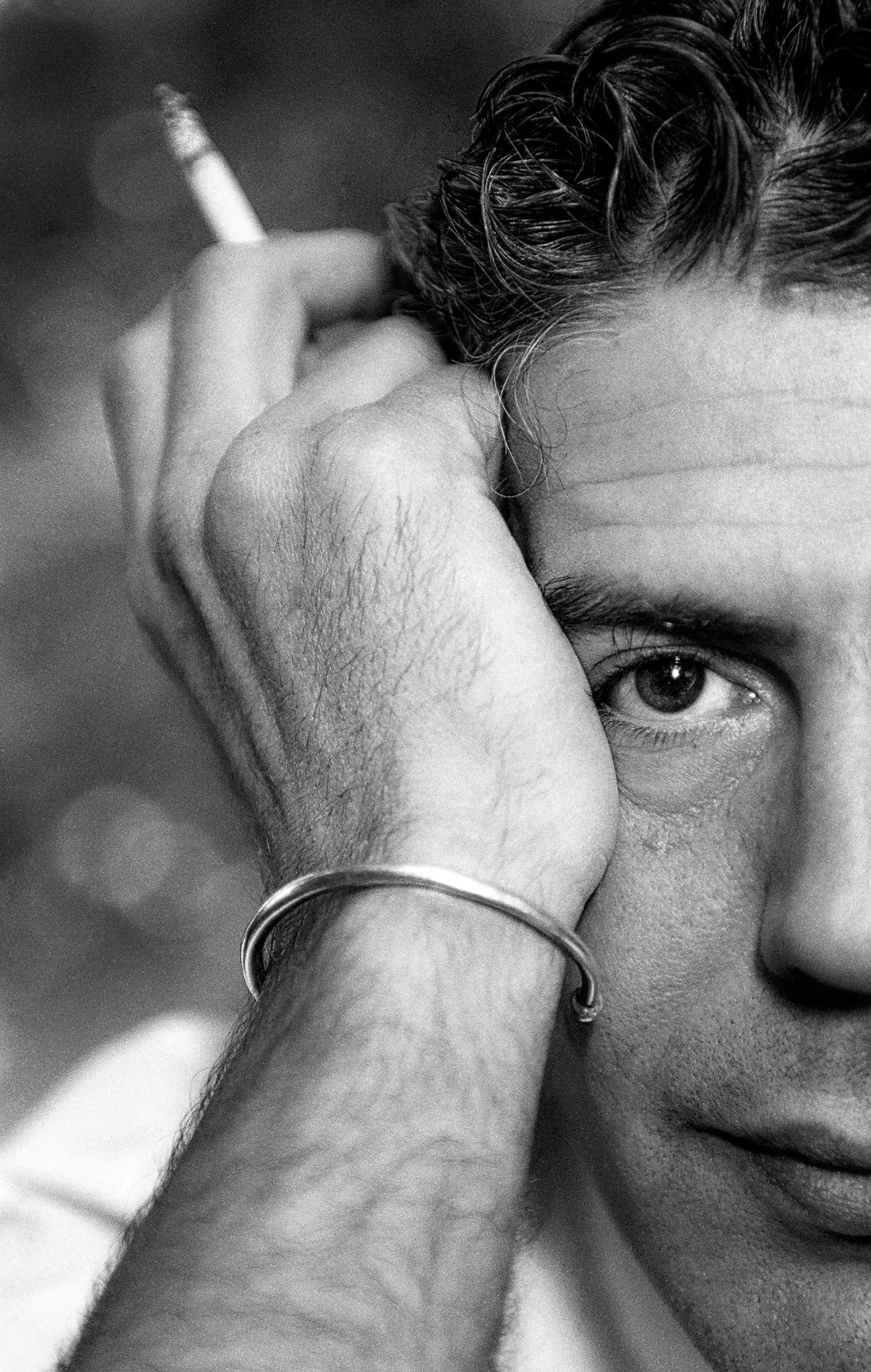
Anthony Bourdain: "There are no lies in the kitchen"
sure to Anthony Bourdain he did not like being defined as a celebrity or a rock star. Although he was well aware of the position he came to occupy at that gastronomic ecosystem , somewhat strange and crazy, with which he had to deal almost daily. Today marks two years since his suicide in a hotel in Alsace . A death that went around the world and filled pages of all kinds, many of them yellow.
Bourdain was 61 years old and only seventeen days short of his 62nd birthday. A lifetime dedicated to cooking a in which he started doing jobs in the lowest echelon and from which he never denied: he used to say that if he had not been preparing meals in infected places the autobiography that gave him fame and money would not have been half as interesting. That book, originally titled Kitchen Confidential (2000) and published in Spain as Confessions of a Chef (2001), allowed us to take a look at the dark side of the kitchen . Some wanted to see in his story a kind of reckoning with the profession , a betrayal that seriously endangered the ways of doing certain restaurants. But far from wanting to destroy the activity that he loved, pointing out and accusing bad practices, what he achieved in just under 300 pages was that many of us join his lucid and sincere way of seeing the kitchen.
Those memories left in writing what was hard and sacrificed, but also thug and wild , which could be starting to make steaks, pâtés, jellies or pork intestines. All this seasoned with a direct, close and tremendously uninhibited language. , who danced to the rhythm of the Dead Boys, the Ramones or the Cramps. Namely, punk and psychobilly that took away the silliness that cooking shows had long imposed on everything that happened in the culinary world. the style of Kitchen Confidential In addition, he encouraged other chefs to give their own vision of what was happening while they were in the kitchen. It was the case of Marco Pierre White, Dalia Jurgensen, Edward Lee, Aaron Sanchez or Kwame Onwuachi.

Why Anthony Bourdain is the traveler and cook we miss the most
But if Bourdain became popular and well-known for something, it was for his facet of traveler and television agitator . In almost twenty years, the New York chef he toured more than a hundred countries and made the cuisines of all of them known . two programs, No Reservations Y Parts Unknown , the first for Canal Viajar and the second for the almighty CNN, we were taught there was another way to approach the unknown , out of sensationalism. Russia, Brazil, Ghana, Turkey, Ethiopia, Nigeria, France, Spain or Italy are seen and traveled by Bourdain and his team, in many cases without giving the exact data of the places they visited, aware of the destructive power that tourism could have in those places . An example? The table of the tiny restaurant he visited with Obama in Hanoi, Vietnam It is now kept inside a glass case. That is why Bourdain's trips played more and more on confusion and drift, on fortuitous encounters with his people and the enjoyment of the environment without rules, nor recommendations. One of his mottos was: “Don't tell me what you ate. Tell me who you ate with.
These days Planeta Gastro reissues Crudo , a book of notes, articles, notes and thoughts, where he wrote down many of his likes and dislikes . Among his preferences he never hid his passion for The Simpsons, jiu-jitsu, smoking weed after a long day at work , everything written by the Californian critic Jonathan Gold wave southeast asian cuisine . On the latter there are chapters that exude true enthusiasm. “My all-time favorite dish, the bun cha , it's charcoal grilling by the curb,” he writes of this Vietnamese snack made with pork and sweet-and-sour green papaya juice. “Bowls of bun oc, that bright, reddish, steamy mixture of snails, noodles, and crab roe-infused broth, are recognizable by the fresh tomato cubes that cover them as I walk by,” he continues, then gets lost in sizzling crepes, crispy baguettes brimming with wild boar's heads , electric red pepper slices, Thai basil, mint, green banana pieces and lime, lots of lime.

"Raw" by Anthony Bourdain
Bourdain liked to eat , but even more tell and describe all that I was knowing and discovering. Also what she surrounded at that moment. A few pages earlier we can enjoy how a delivered vindication of the motorcycle trip through the streets of the Vietnamese capital . “Hanoi can only be seen from the back seat of a scooter. Going by car would be crazy. It would be going at a snail's pace and not even reaching the middle of the narrow streets and alleys where the best of all this is to be found. To interpose a glass between yourself and what surrounds you would be to miss it”, recalls a Bourdain to whom it is not difficult to imagine with a smile and his white hair waving through the poorly paved streets of the city that his compatriots had to abandon four decades earlier. “Here, the pleasure of traveling in the back seat of a scooter or a motorcycle is confuse yourself with the mass, become a small piece of the organic entity , a mobile and protean process of races, encounters, detours and turns through the veins, arteries and capillaries of the city”. Bourdain in its purest form.
His different television programs made all this reach more people. But the real Bourdain is in his writings . Passages where he describes hangovers, crushes, addictions and again, meals in the most unexpected places on the planet . "The sichuan hotpot it is the point where you discover terrible things about yourself ”, he begins by telling about one of the most extreme delicacies of Chinese gastronomy. “You look at the diners around you in the crowded, aggressively lit, chengdu restaurant , how they wipe the backs of their necks with cold napkins, their red faces, distorted by pain. Some hug their stomachs. But they persevere, like you . They dip chopsticks laden with offal, fish balls, and vegetables into giant woks filled with dark, sinister-looking oil.”
In the kitchen there are no lies , was another of his most praised phrases. A comment that directly related him to David Chang , one of the chefs who has best known how to relate the affinity relationships between the recipe books of different cultures. Chang, the man behind the Momofuku empire , is the perfect heir to all that tradition that Bourdain claimed in his books and television series. The Mind of a Chef Y Ugly Delicious , both of them until recently on Netflix, are pills of honesty around something as complex and at the same time as simple as Neapolitan pizza, Korean barbecue or New Orleans gumbo.
Interestingly, the two plan to publish separate volumes in October this year. Eat a Peach will be the long-awaited memories of the chef of Korean origin and World Travel , the travel recommendations left half-written by Bourdain and that his assistant and collaborator, Laurie Woolever , has seen fit to finish. Approaches to a world that is stranger and more changing than ever due to the coronavirus, but to which sure Bourdain, with that look between melancholic and expectant, would know how to recognize something good . The first compilation of his texts around the world, titled Travels of a Chef (2003), ended with Bourdain in a hammock somewhere in French Polynesia doodling: “ Along the way I have learned something. It's not worth wasting. Even here... I have everything”.

"It's not worth wasting. Even here... I have everything"
